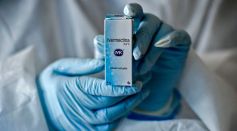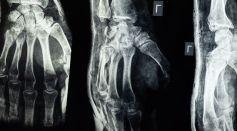MEDICINE & HEALTH

Eating Leftovers Left Teenager With Amputated Legs, Fingers: How Long Can Food Scraps Be Safely Eaten?

Ivermectin Not A Miracle COVID-19 Drug: New Study Shows It Does Not Prevent Hospitalization for Severe Illness

How to Burn Visceral Fat? Experts Revealed One Drink That Can Help Lose Belly Fat But Satisfies the Sweet Tooth

Do You Have Uncontrollable Eating Habit? How Serious Is Binge Eating?

Queen Elizabeth II Tests Positive for COVID-19: How Serious Is Coronavirus for Elders Like the 95-Year-Old Monarch? R

Moderna to Develop 3 New Vaccines Including mRNA Treatment for Cancer and Herpes

Obsessively Passionate Workers Experience More Negative Emotions and Stress; Report Lower-Level of Psychological Wellbeing, Study Says

People Who Survived Heart Attack Have Reduced Risk of Developing Parkinson's Disease, Study Claims

Art, Music Therapy for Mental Health Disorder; How Do They Influence the Brain?

Low-Carb Vs. Balanced-Carb Diets: Which Between The 2 Meal Plans Is Better for Weight Loss?

Antibiotic Overprescription: Early Antibacterial Treatment Could Decrease Newborns' Gut Microbiome, Increase Antimicrobial Resistance

Itchy Skin Could be a Symptom of Cancer: 20-Year-Old Woman Diagnosed With Hodgkin Lymphoma After Chronic Itching

Astronauts' Brains Rewired During Long-Term Space Missions to Adapt to Extreme Cosmic Environment

Bleeding, Death from Traumatic Injuries May Be Prevented Using Nanoparticles
Most Popular

Dream Science Meets Neuroscience: HowDream Engineering and Targeted Sleep Stimuli Unlock Creative Cognition

Why the Human Brain Fears the Unknown: Science Behind Anxiety and Uncertainty

The Gut Microbiome's Hidden Allies: New Bacteria Linked to Better Health and Well-Being

Coral Bleaching Crisis: Ocean Heatwaves Devastate Reefs and Marine Biodiversity





